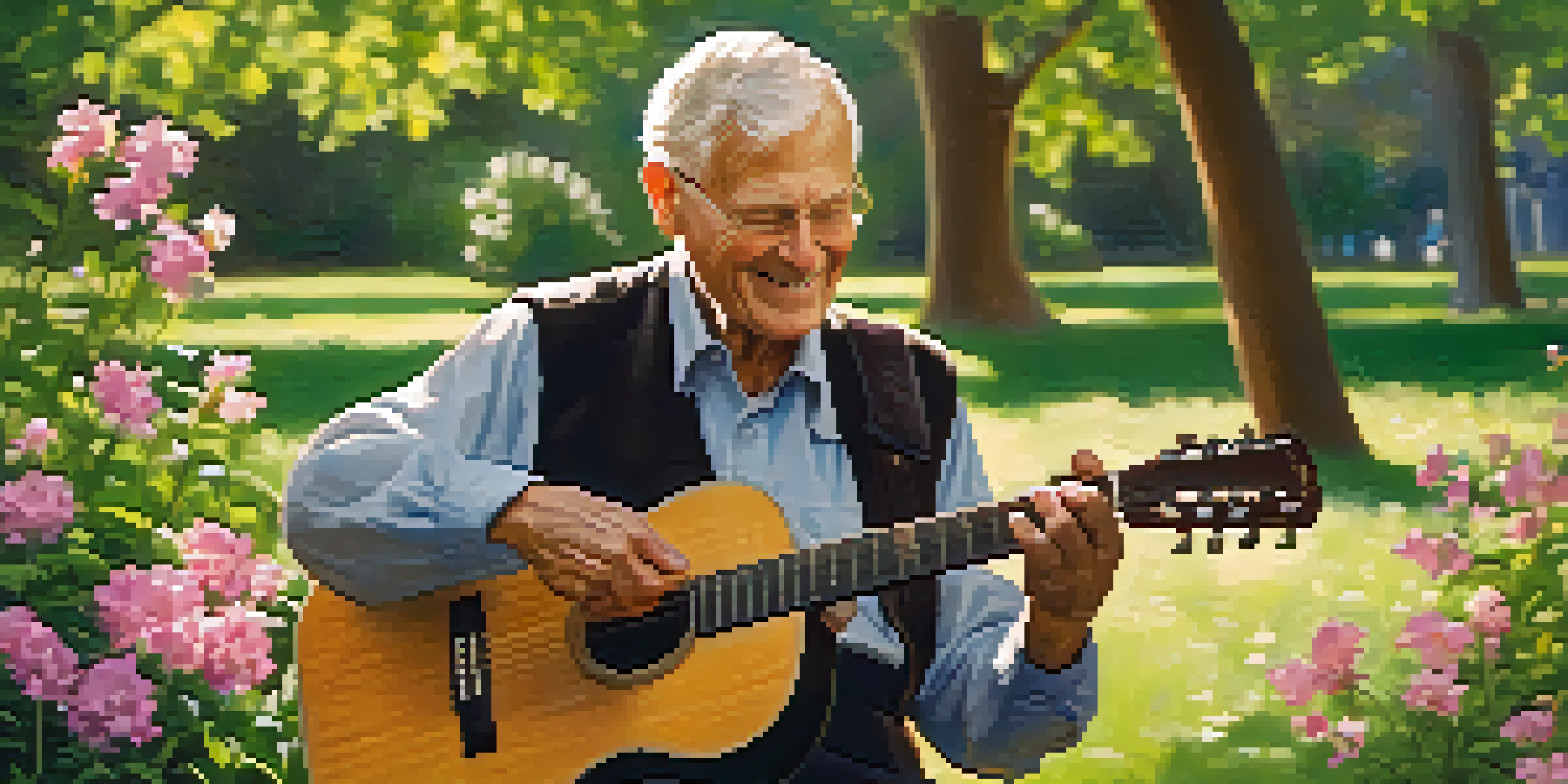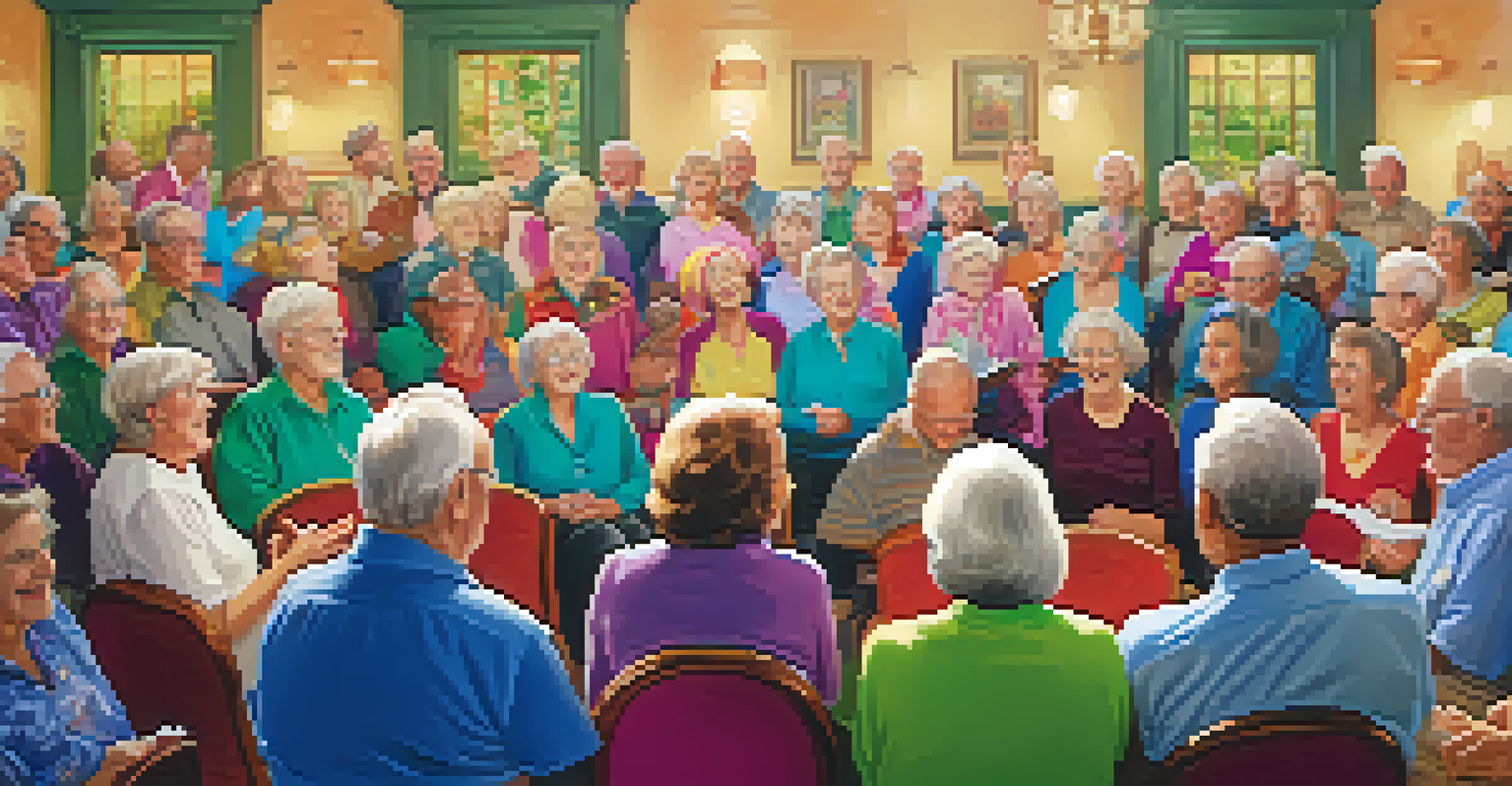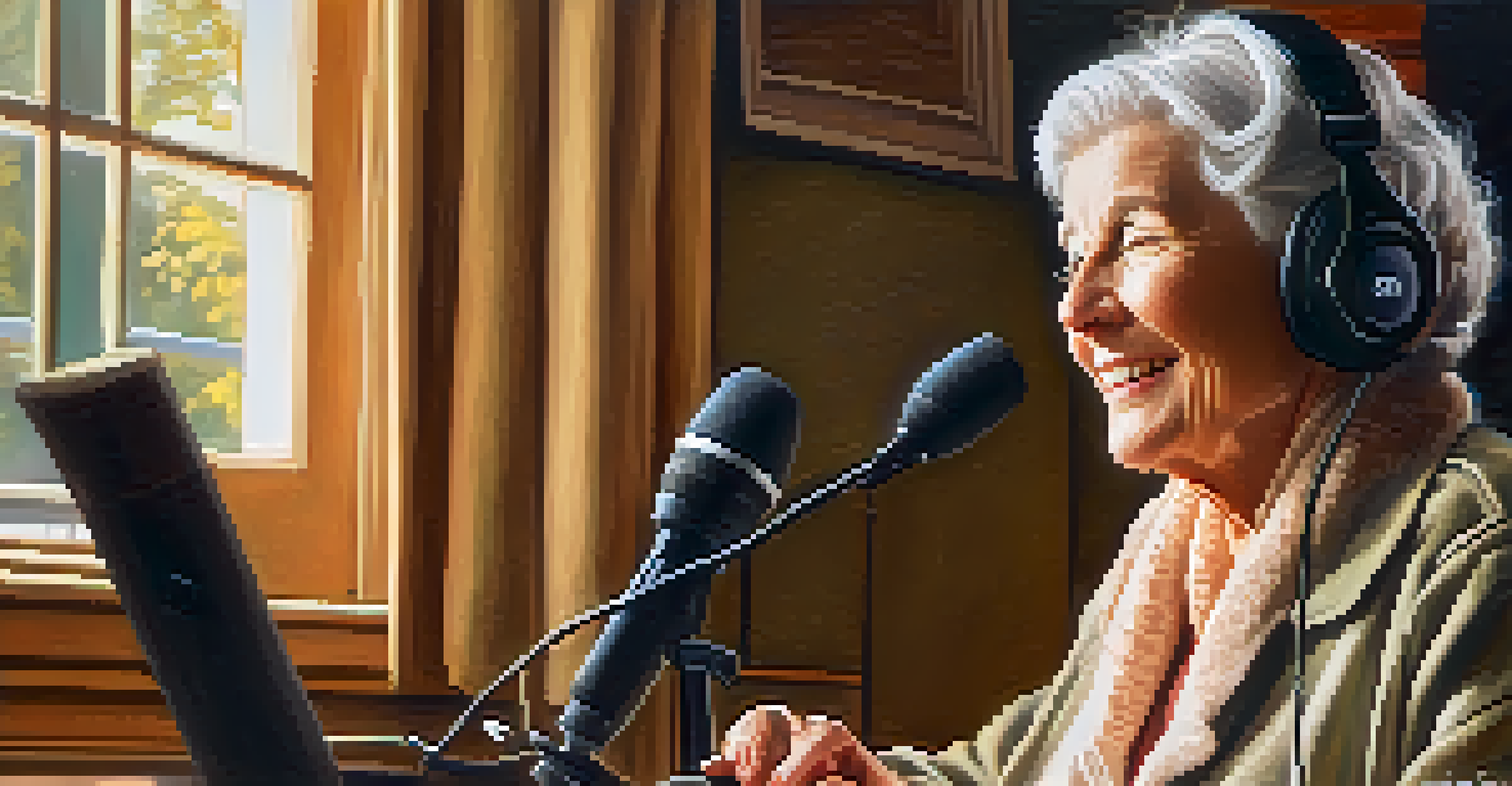The Influence of Music on Mood Regulation in Older Adults

Understanding Mood Regulation in Older Adults
As we age, our emotional landscape can shift significantly. Older adults often experience changes in mood due to various factors, including health issues, loss of loved ones, or social isolation. Understanding mood regulation becomes essential for enhancing their quality of life.
Music can change the world because it can change people.
Mood regulation refers to the processes through which individuals manage their emotional states. For older adults, finding effective strategies to regulate mood can lead to improved mental health and overall well-being. This is where music steps onto the stage as a powerful tool.
By engaging with music, older adults can access emotional memories and experiences, creating a bridge to their past. This connection often helps in stabilizing their mood and providing a sense of comfort.
The Science Behind Music and Emotions
Music is not just an art form; it has deep psychological roots that influence our feelings. Research shows that music can trigger the release of dopamine, a hormone associated with pleasure and reward. This neurochemical response can help lift spirits and alleviate feelings of sadness.

Moreover, the rhythm and melody of music can evoke specific emotional responses. For instance, a lively tune can energize and uplift, while a slow ballad might promote reflection and calmness. Understanding these effects can guide older adults in choosing music that suits their mood needs.
Music Enhances Mood in Seniors
Engaging with music can significantly improve mood and emotional well-being for older adults.
This intrinsic connection between music and emotions highlights why music therapy is gaining traction in senior care. It’s not just about listening; it’s about engaging with music to foster emotional well-being.
The Role of Familiarity in Music Choices
Familiar music can serve as a powerful anchor for older adults, often evoking cherished memories. For instance, a song from their youth may transport them back to happier times, creating a comforting familiarity. This connection can be particularly beneficial for those dealing with dementia or memory-related issues.
Where words fail, music speaks.
When older adults listen to music they recognize, it can trigger positive emotions and facilitate communication. This is especially true in settings like nursing homes, where familiar melodies can spark conversations and strengthen social bonds.
Encouraging seniors to choose their favorite tunes can empower them and foster a sense of agency in their emotional experiences. It’s a simple yet impactful way to improve their mood and overall outlook.
Creating Music-Based Routines for Seniors
Establishing a routine that incorporates music can significantly enhance mood regulation for older adults. Whether it’s a daily dance session, listening to a playlist during meals, or enjoying live music events, consistency helps create a positive atmosphere.
For example, starting the day with uplifting music can set a cheerful tone, while winding down with calming melodies can promote relaxation. Such routines not only regulate mood but also provide structure, which many older adults find comforting.
Familiar Tunes Spark Memories
Listening to familiar music can evoke cherished memories, promoting positive emotions and social interactions.
Moreover, engaging in group music activities, like choir singing or drumming circles, can foster community and reduce feelings of loneliness. These shared experiences can amplify the mood-boosting effects of music.
The Impact of Live Music on Emotional Well-being
Live music performances hold a unique charm that can evoke powerful emotions. For older adults, attending live concerts or community music events can be a joyous experience, fostering social connections and reducing feelings of isolation.
The energy of live music can create an electric atmosphere that enhances mood, encouraging participation and engagement. Whether it's tapping feet to a lively beat or reminiscing over a classic tune, the experience is often transformative.
Moreover, live performances can stimulate cognitive functions, encouraging seniors to remember lyrics, dance, or even interact with others. This mental engagement is crucial for maintaining emotional and cognitive health.
Music Therapy: A Professional Approach
Music therapy is a structured approach that uses music to address emotional, cognitive, and social needs. Professional music therapists work with older adults to develop personalized programs that leverage their musical preferences for therapeutic outcomes.
Through guided activities like songwriting, instrument playing, or even music-based storytelling, older adults can explore their emotions in safe environments. This process not only reduces anxiety and depression but also enhances mood and social interaction.
Active Music Engagement Matters
Encouraging older adults to actively participate in music activities fosters deeper emotional connections and enhances social bonds.
The effectiveness of music therapy in senior care settings is well documented, showing significant improvements in mood and emotional regulation. It’s a valuable option for families seeking holistic approaches to support their loved ones.
Encouraging Active Engagement with Music
To truly harness the mood-regulating power of music, older adults should be encouraged to engage actively. This could mean learning to play a musical instrument, joining a community choir, or simply singing along to their favorite songs.
Active engagement fosters a deeper connection with music, enhancing its emotional impact. For instance, playing an instrument can stimulate cognitive functions while providing a creative outlet for expression.

Moreover, such activities often lead to social interactions, providing older adults with the opportunity to bond over shared musical interests. This sense of community can further enhance their emotional well-being.